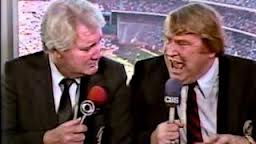How does a high school student train twenty hours a week in a sport, travel ten to eleven weekends a year to competitions, maintain a 4.0 GPA with honors classes, and become valedictorian of her class? I’m not sure, but I’ve seen it happen several times. Those of you reading this blog, I’m sure, are aware of the incredible children we see in sports. I am constantly amazed by the maturity of children and particularly teenagers who are involved in gymnastics.
 How do they do it? What motivates them? Have they learned something we can teach all children to help them be more successful? Are these student/athletes pre-disposed at birth to have this kind of maturity and success or are their extraordinary accomplishments due to skills and knowledge learned from parents, teachers, coaches and mentors? If these are learned skills, what can we do to teach them to the masses? Which skills are most important?
How do they do it? What motivates them? Have they learned something we can teach all children to help them be more successful? Are these student/athletes pre-disposed at birth to have this kind of maturity and success or are their extraordinary accomplishments due to skills and knowledge learned from parents, teachers, coaches and mentors? If these are learned skills, what can we do to teach them to the masses? Which skills are most important?
Looking at the three valedictorians and the several near valedictorians I’ve had on my team recently, I see some commonalities. Of course, time management is near the top of the list of skills and habits. It is the web that holds the big picture together. Each of these girls are “ahead of the game” in self-discipline, something you would expect. Obviously, they have above average intelligence. They all sacrificed some social time, but not their social life. They are goal-oriented and seem to have a clear picture of what they want to do with their life earlier than most girls. They have a great sense of priority. Perhaps the one characteristic that sets them apart from most was their love of a challenge, in particular, the challenge of learning, whether gymnastics, calculus, anatomy or all of these. The knowledge gained from an activity was a motivator, but the process of learning, the thrill of learning something new and attaining goals seemed to be what drove them to success. The world of psychology would call them task-oriented.
Task oriented people gauge their success based on effort and how much they improve their skills or increase their knowledge. Winning and social acceptance are less motivating than learning from the process of performing the task, including their mistakes. Don’t get me wrong, task oriented people are competitive. Competition motivates them because it is a learning experience and a chance for social interaction. But, finishing in first place and gaining social recognition is not the driving force behind their participation. I believe this plays a key role in their stability, and therefore, their perseverance as students and athletes. People who are primarily motivated by winning and gaining social recognition (things that boost their ego) are more likely to ride a roller coaster of emotions causing them to enjoy activities less and drop out earlier than task oriented individuals. A person or team can not win all the time. Social recognition is fleeting and not guaranteed even if you are winning. I would almost argue that a person who wins most competitions may pay a social price due to jealousy.
So, is there something we can do, as coaches and parents to develop these traits, habits, skills and desires in our athletes and children? Yes!
We should focus on the process of learning more than the outcome, set goals based on this principle and teach our children to determine success based on those goals. Outcome goals are also necessary, but should be tied closely to the process goals. These outcome goals should be a tool to measure if the process is working the way we want it to. We should consistently reward effort and improvement rather than the final score. Effort and improvement are largely controlled by the athlete, but the final score is affected by many variables outside the athlete’s control. We should create an environment where mistakes are considered part of the learning process and will not be punished.
Why should we want our children to be task oriented? They will enjoy participation more. They will persevere in activities. Their determination of success will be largely under their own control, making the path to a successful future more clear. They will experience the thrill of learning and will be motivated by effort and improvement. Hard work, self-motivation, self-discipline, fun and more enjoyable participation all seem to follow the task oriented person.
But, what about those things that boost our ego, do we have to ignore them? Like most things in life, being at the extreme is not good. So, my answer to this question is, no. Don’t ignore the scores or the social recognition, just keep them in perspective and don’t allow them to dominate your child or athletes desire for participation and for learning.
These super student/athletes love to learn, whether in sports or academics. Much of that is innate, but it can be enhanced by the motivational environment they are exposed to. As parents and coaches, we influence that environment.







